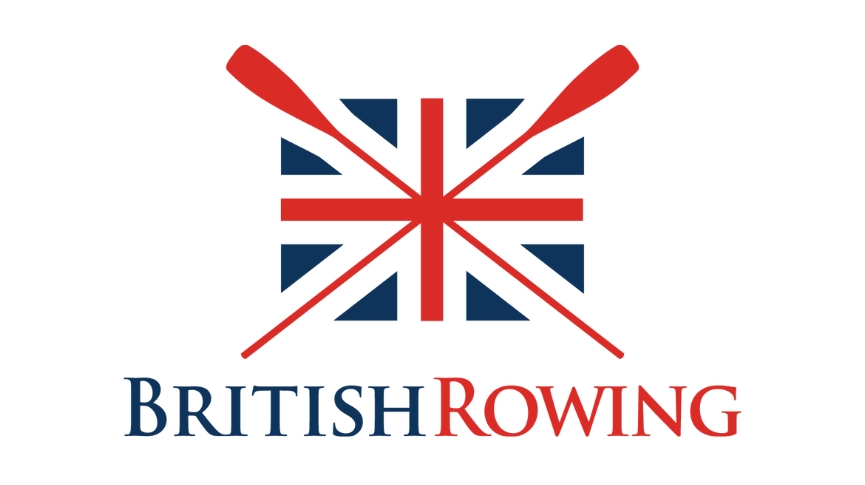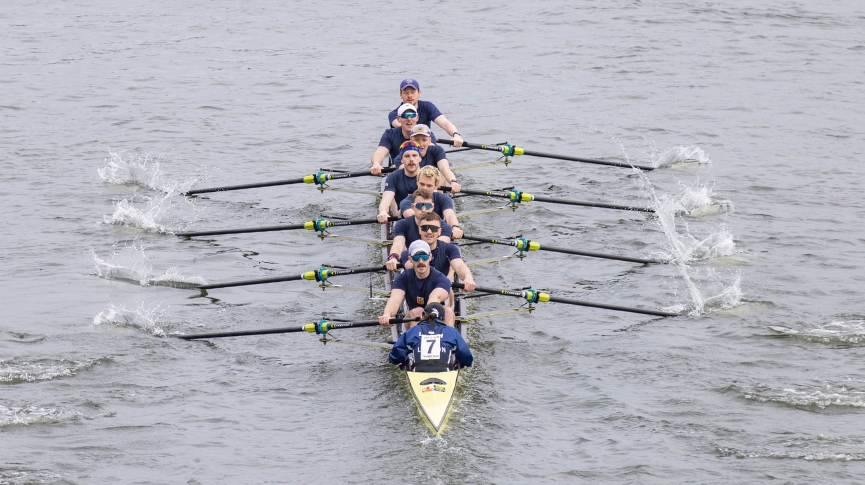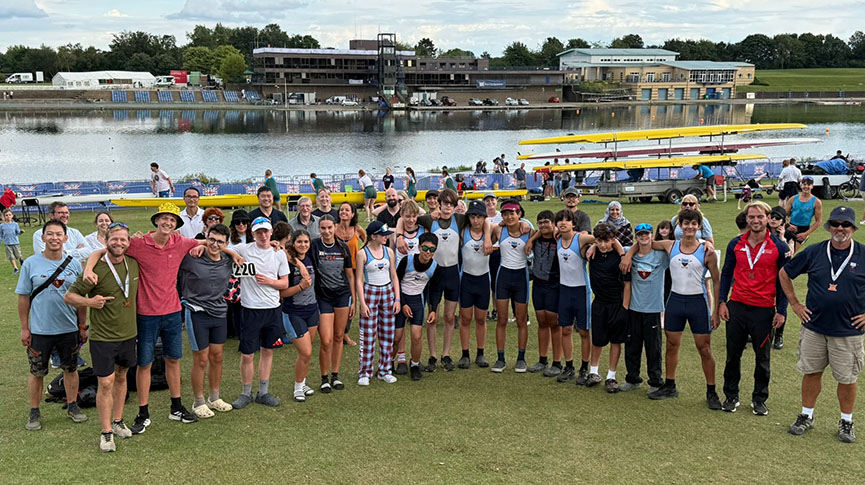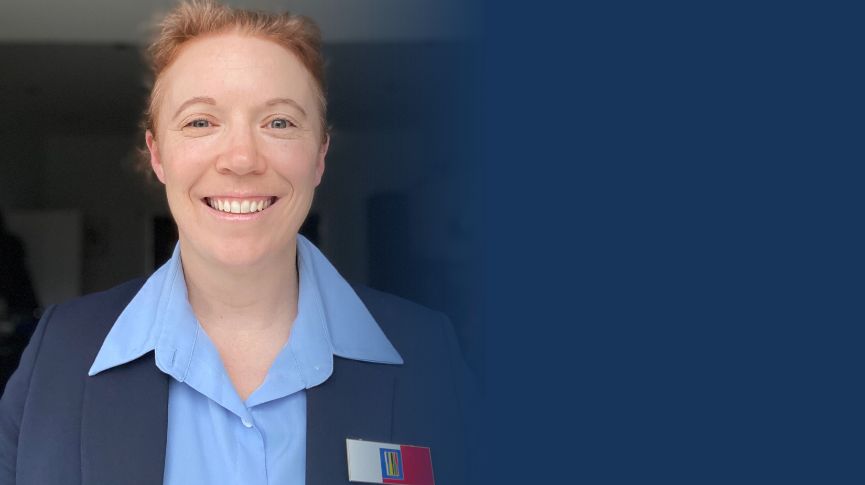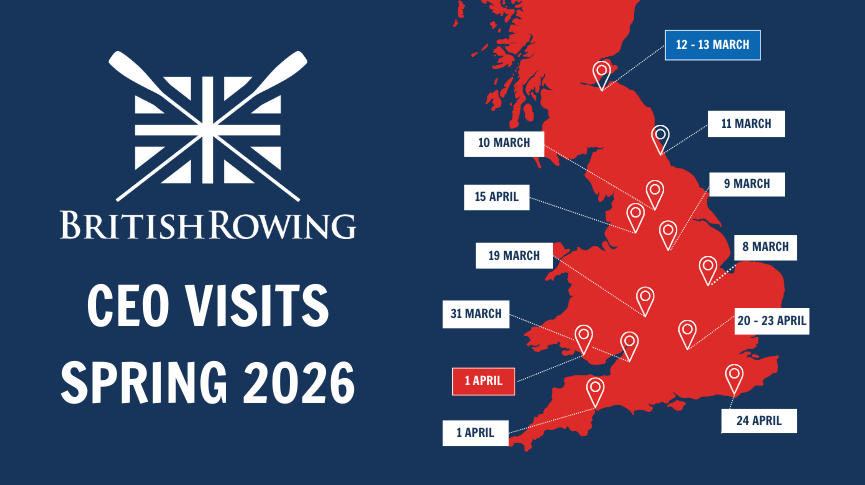How to win the Victor Ludorum at the British Rowing Club Championships
Fergus Mainland sits down with Katie Greves of Wallingford RC and Poppy Kearney from the South West GB Performance Development Academy to learn about what it takes to win a VL
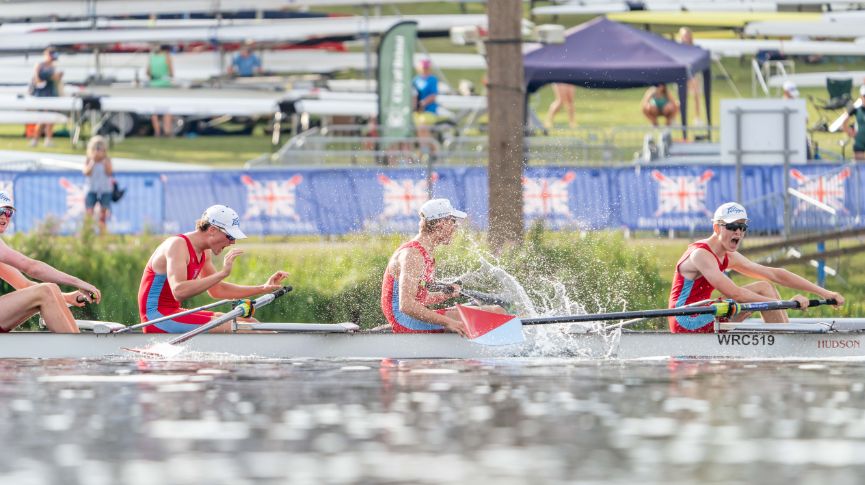
Credit: AllMarkOne
With thousands of athletes participating in hundreds of races across four days, orchestrating a win in the Victor Ludorum is no mean feat. The VL is awarded to the club that accumulates the most points across all of these races in the Junior, Senior and Overall categories.
For the second year in a row, Wallingford RC won the Junior and Overall VL. They travelled to Nottingham with the second-largest entry and put together some masterful performances. In both of those standings, they finished ahead of The Windsor Boys’ School BC and Claires Court School BC.
For the Senior VL, it was the Bath University BC who left with the trophy, having beaten Thames RC and Hereford RC into second and third place respectively.
For Director of Junior Rowing at Wallingford RC, Katie Greves, this year’s achievement is a testament to the depth of the squad that is amassing in Oxfordshire.
“It’s pretty awesome,” said the 2016 Olympic silver medallist. “I’m not sure we were completely expecting it this year, but we were hoping for it. We’ve got a few of our senior girls who have got international representation coming up, so we needed to pass things on to the younger athletes, and we were hoping, but definitely not expecting.
“One of the most exciting things for us was the middle band, to have finalists in J15 Open and Women’s Coxed Quads, two finalists in J16 Open Quadruple Sculls and finalists in J16 Women’s Quadruple Sculls. That middle band of sculling has massively stepped on. We had our headline girls’ quad last year, but apart from that, we were not competitive in those events.
“That’s something with that middle band of the club that is really exciting. You’re looking at that and saying that we’re not reliant on four or five superstars doing four events to turn up with all of the medals, we’ve also got this band in the middle that’s really beginning to fight in those events that have traditionally been so competitive, so there’s lots to look forward to!”
While Wallingford RC’s junior squad has grown to around 130 athletes, the University of Bath BC travelled to Nottingham with a smaller squad, aiming to build on strong results throughout the season. This was a performance driven by the South West Performance Development Academy, and British Rowing Satellite Coach Poppy Kearney was very proud of all the results from across the weekend.
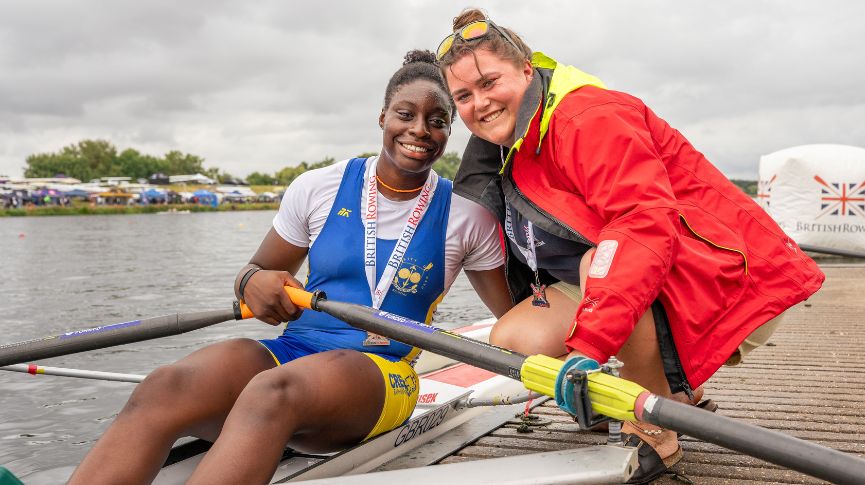
“It’s good! It came as a bit of a surprise as we only had 13 or so athletes there, but a good surprise,” she said.
Both Wallingford RC and Bath University BC are juggling a number of different events at the moment, with several of their athletes stepping up to represent their countries at the Home International Regatta, FISU University Games, U19 World Championships, and EUSA later on in September.
“It’s a testament to the athletes and the squad depth that we’ve got at the moment that we can have athletes that are all over the place, training for different projects, and we can still have success in different settings. The squad depth goes beyond where we are training.”
It speaks volumes of these programmes that they can travel to the British Rowing Club Championships and produce such a stellar set of results. Hosted in Bath by the University of Bath and Minerva Bath RC, the South West GB Performance Development Academy was set up in 2003 and has produced some of GB’s most decorated rowers, including double Olympic Champions Helen Glover and Heather Stanning.
Throughout the 2024/25 season, the athletes have put together some results they can be very proud of, as Poppy explained.
“We had a really good BUCS Regatta and finished seventh on the VL table there. This was alongside other athletes from Bath University as well. That brought some EUSA qualifications as well, so a couple of crews will be going out to Poland in September to see where they stand more internationally.
“We also had some quite good smaller competitions, such as the Olympic Pathway Regatta, which is a big one for the GB Performance Development Academies. It’s an opportunity for a lot of people to try single sculling and do some side-by-side racing for the first time, and we ended up winning the VL there as well, and that was a really positive set of races.
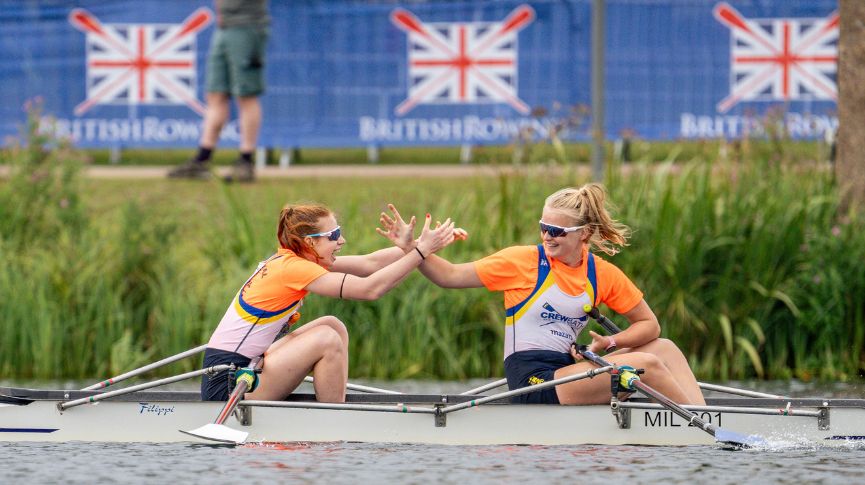
“There’s been some other notable results with some of the newbies who started rowing late last year, with some good performances at smaller regattas such as Monmouth. So good performances all round with FISU vests and more locally, home international vests as well. It’s a wide range of abilities in the squad, but I think they’re all doing really well, and it’s been a really good season and hopefully a fun one as well.”
Wallingford RC have been making waves in recent years and are on their way back to the very top of the junior rankings. 2025 marked the first time they qualified a crew for the Princess Elizabeth Challenge Cup, while their junior women were seeded and reached the semi-final of the Prince Phillip Challenge Trophy.
The club also has representation at the most recent GB vs France match, where Wallingford athletes in the Women’s Eight and Men’s Pair helped the hosts win the 43rd match between the two countries.
For Greves, it’s important that the current crop of J15s and J16s are able to learn from these achievements and build on them going forward.
“We are still not quite there at the top end, and it’s difficult for athletes when there is nothing to follow. Our current outgoing J18s didn’t have years in front of them with international honours or National Schools’ Regatta medals; they’ve been treading a recent new path.
“Obviously, the club has history in those events, but not recent history. We’re going back 10 years since the last time we had any GB vests, and this summer is going to be our first summer with U19 GB vests in a long time. It’s really hard when you’re trying to be the ones to make that new path for others to follow, and I think we increased that on the lower levels, but we still need to do more. Everyone is coming back after this summer, thinking what might be, and I’m hoping that enthusiasm rolls off into next year as well.”
A club like Wallingford RC are heavily reliant on volunteers, and they receive a huge amount of support from the parents. As well as this support, Greves was also keen to stress the skills that the athletes have learned and the levels of independence they can operate with at events.
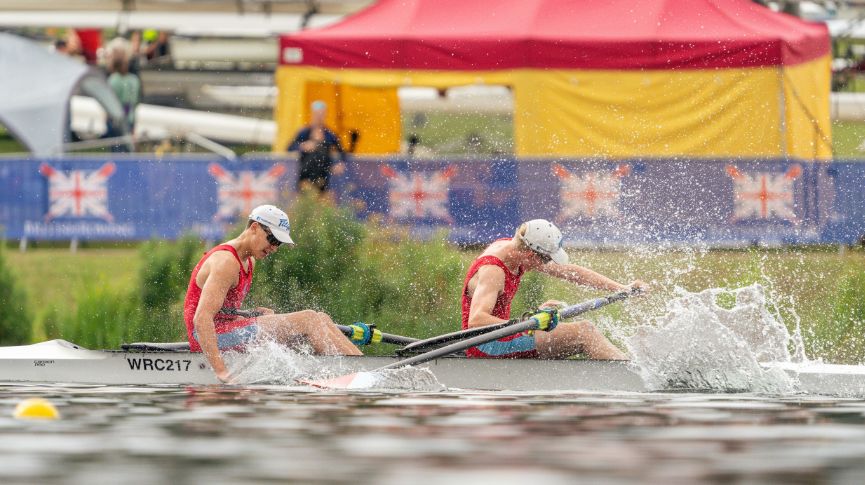
“The majority of our coaches are parent volunteers. That’s something that is really special and we are fortunate to have, and it certainly plays its part. We have them, and then we have our amazing Club Captain Geoff, who was there for the full four days, towing trailers and generally making everything happen.
“I think it’s a great atmosphere, and I think the kind of things the parents did do are so important, but less to do with the rowing. They organised the barbecue on Saturday night. They made sure everyone was fed, which allowed me to look after the racing. All those sorts of things are what make the club such a great community to belong to.”
One key theme across both of these clubs is the sense of community that stretches beyond the boathouses. Wallingford RC draws from a number of local state schools, but the largest is Wallingford School, which is incredibly supportive of its pupils.
“Our local newspaper runs with it any time we do anything. Our biggest school that we pull from is our local state school, Wallingford School, and we have such a good relationship with their PE department; they are so proud of our athletes. Any time anything goes up on social media, it’s already up on their social media and parents are sending in things.
“They come back to us and comment on how much of a positive effect rowing is having on their kids. Not just that it’s great the kids are winning races, but how it’s turned around their behaviour and their performances in the classroom, the way they are acting as role models for the other students. They could not be any more supportive of us, which is really fantastic, and the schools we are pulling from, it’s spreading further into the community, and I think that’s really special to have and to be a part of, explained Katie, who herself has won 16 medals at World Cup events.
For Poppy and the team in and around Bath, it’s about the whole region coming together and supporting one another on the biggest stages.
“You are part of the South West team, and I think that’s really positive. It’s fabulous that we’ve had success for Bath University this past weekend, and it goes beyond the university system as we’ve had some really good results for South West juniors, some medalling for the first time at Brit Champs.
“We’ve seen some positive steps forward with so many clubs and athletes, and it’s really nice to go to a competition like the Championships and see a regional dynamic, where everyone knows everyone and where we have people from Bristol cheering on Bath University. I think it’s really lovely to see that all age groups are welcome and have that platform. It’s really exciting to see how far it can go and how big we can make it.”
Watch the all of the races back on Champs Live!


